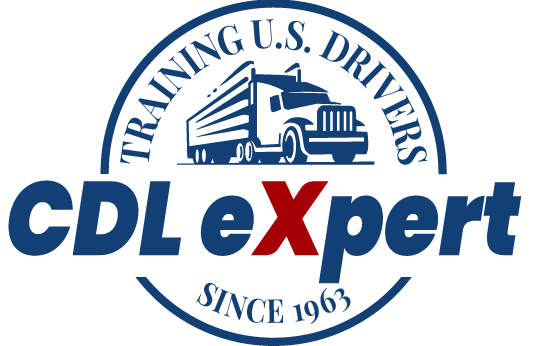How Do I Get My CDL in Tennessee?
- Marcie Tomb
- Oct 16, 2024
- 4 min read

Getting a CDL in Tennessee
Pursuing a career as a commercial driver in Tennessee offers opportunities for job security and competitive earnings. Whether you're interested in driving large trucks, buses, or vehicles transporting hazardous materials, obtaining a Tennessee Commercial Driver’s License (CDL) is essential. Below, we’ll cover the requirements, processes, and considerations for obtaining your CDL in the state.
Who Needs a Tennessee CDL?
Anyone operating a commercial motor vehicle (CMV) in Tennessee is required to have a valid CDL. This includes drivers of single vehicles with a Gross Vehicle Weight Rating (GVWR) of 26,001 pounds or more, combination vehicles with trailers exceeding 10,000 pounds GVWR, vehicles designed to transport 16 or more passengers, or vehicles carrying hazardous materials that require placards.
CDL Exemptions in Tennessee
Some drivers are exempt from needing a CDL. This includes farmers operating farm vehicles within 150 miles of their farm, military personnel driving military vehicles, operators of emergency response vehicles like fire trucks during emergencies, and those driving recreational vehicles for personal use.
Types of CDL Licenses in Tennessee
Tennessee offers three classes of CDL licenses:
Class A: For operating vehicles with a combination weight of 26,001 pounds or more, such as tractor-trailers.
Class B: For single vehicles with a GVWR of 26,001 pounds or more, like buses or larger trucks.
Class C: For vehicles designed to transport 16 or more passengers or hazardous materials.
Do You Need a CDL?
If you plan to operate any commercial vehicle that exceeds certain weight limits or transports passengers or hazardous materials, a CDL is required. For instance, tractor-trailers (Class A) and buses (Class B) both require a CDL in Tennessee.
How Long Does It Take to Get a CDL?
Obtaining a CDL can take anywhere from four to eight weeks, depending on whether you enroll in a CDL training program. Full-time training typically lasts four weeks, while part-time programs may take longer. After completing the knowledge test, you must hold a Commercial Learner's Permit (CLP) for at least 14 days before taking the skills test.
Entry-Level Driver Training (ELDT)
ELDT refers to the basic skills and knowledge required to operate commercial motor vehicles, including topics like vehicle control, air brakes, and regulations. ELDT is mandatory for new Class A and B licenses, as well as for specific endorsements such as Passenger, School Bus, or Hazardous Materials.
Commercial Learner's Permit (CLP) Test in Tennessee
The Tennessee CDL permit test consists of 50 general knowledge questions, and you must score at least 80% to pass. Endorsements such as for Passenger (P), School Bus (S ), Tanker (N) can be added but require additional testing.
Eligibility Requirements for a Tennessee CDL
To qualify for a CDL, you must meet the following criteria:
Be at least 18 years old for intrastate driving or 21 for interstate driving and hazardous materials.
Provide proof of U.S. citizenship or lawful residency.
Hold a valid Tennessee driver’s license.
Pass a DOT medical exam to verify your physical ability to operate a commercial vehicle.
Required Documents for CDL Application
When applying for your CDL, you will need:
Proof of U.S. citizenship or legal residency (such as a U.S. passport or Permanent Resident Card).
Two forms of Tennessee residency verification, such as a utility bill or bank statement.
A valid DOT medical card.
Applying for a Commercial Learner's Permit (CLP)
To start the process, apply for a CLP at your local Driver Services Center. You'll need to submit your documents, pass the CDL knowledge test, and pay the application fees. You’ll also need to complete ELDT training and practice driving under the supervision of a CDL holder for at least 14 days before taking the skills test.
Scheduling Your Driving Skills Test
After holding your CLP for 14 days, you can schedule your driving skills test, which includes a pre-trip inspection, basic vehicle control, and on-road driving. You can take this test at a state-run facility or an approved third-party testing site.
CDL Endorsements
You may need endorsements for specific types of commercial driving. Some common endorsements include. Further explanation is available in the Tennessee CDL Manual which you can download free here.
Hazardous Materials (H): Requires a background check and passing the Hazmat knowledge test.
Passenger (P): For vehicles carrying 16 or more passengers including the driver.
School Bus (S): Required to Drive a School Bus must also have Passenger (P)
Tanker (N): For transporting liquids in bulk.
Doubles and Triples (T): For hauling two or three trailers.
HazMat with Tanker (X): Combination of HazMat and Tanker
Physical and Medical Requirements
To maintain your CDL, you must update your DOT medical card periodically to confirm your physical fitness. This includes checks for vision, hearing, blood pressure, and general health.
Disqualifications
Certain violations can disqualify you from holding a CDL. These include reckless driving, driving under the influence with a blood alcohol concentration of 0.04% or higher, and refusing a blood or breath test when requested.
Military Skills Test Waiver
Military personnel with experience driving heavy vehicles may be eligible for the Military Skills Test Waiver, allowing them to bypass the skills test portion of the CDL application.
Paid CDL Training
Several companies in Tennessee offer paid CDL training, where they cover the cost of your education in exchange for a work commitment after you obtain your CDL.
Receiving Your License and Choosing a Career Path
By following these steps, passing the tests, and paying the fees, you’ll have your CDL in Tennessee soon and will be starting a successful commercial driving career. If you want more information about different career options for commercial drivers, you can read more on the CDL Expert blog page here. Good luck as you begin your career as a professional driver in Tennessee and safe travels!

Σχόλια